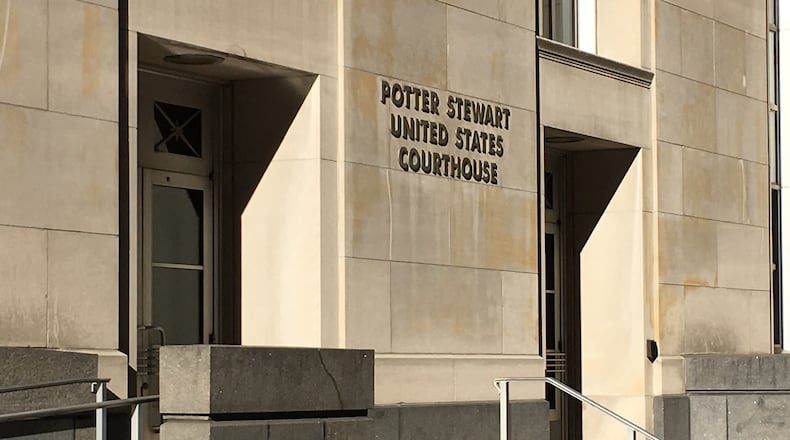In addition to the prison term, Jobalia was also ordered to pay nearly $2.2 million in restitution to Medicaid, Medicare and the Ohio Bureau of Workers' Compensation.
Jobalia was indicted by a federal grand jury in June 2018 and pleaded guilty in September 2019.
In August, a Hamilton physician, Dr. Saad Sakkal, was sentenced to 20 years in federal prison after a jury convicted him in April 2019 of 30 counts of illegal distribution of controlled substances outside the scope of a medical practice and with no legitimate medical purpose, and six counts of use of a registration number that was issued to someone else.
According to court records, Sakkal illegally distributed and dispensed controlled substances to multiple patients, including drugs that led to the death of one victim in 2016. Sakkal was practicing at Lindenwald Medical Association, Inc. in Hamilton.
During the trial, prosecutors presented evidence gathered by investigators that Sakkal performed inadequate physical exams to identify and verify patient’s complaints of pain, and that he issued prescription combinations that were particularly dangerous and addictive.
Pharmacists testified that they warned Sakkal of the risks and eventually refused to fill prescriptions issued by Sakkal. Investigators also testified that Sakkal received repeated notice of addiction, overdoses and deaths, but continued his practices.
According to court documents, Jobalia owned and operated Cincinnati Centers for Pain Relief in Hamilton from March 2013 through December 2017. Although the practice was not licensed as such, it operated almost exclusively as a pain clinic.
Patients were prescribed fentanyl, oxycodone, methadone, morphine and other controlled substances on many occasions without actually being seen by the doctor, according to court documents.
“Prescribing controlled substances outside the usual course of professional practice and for illegitimate medical purposes is illegal,” said Lamont Pugh III, Special Agent in Charge, U.S. Department of Health & Human Services, Office of Inspector General – Chicago Region. “This defendant’s actions put the health and safety of his patients at risk and further exacerbated the ongoing opioid epidemic. The OIG will continue to work with our law enforcement partners to ensure that individuals who that engage in this illegal behavior are held accountable.”
“He was a dope dealer with a white coat and a license, and now he has neither,” Ohio Attorney General Dave Yost said. “He shares responsibility for the misery of addiction and death that we call by the clinical name of the opiate crisis, and I am glad to support the work of the United States Attorney in bringing him to justice.”
Jobalia’s practice also billed Medicare, Medicaid and the Bureau of Workers' Compensation for medically unnecessary prescriptions and services not rendered.
For example, prescriptions to one customer alone caused the Bureau of Workers' Compensation to pay more than $450,000 for medically unnecessary drugs. In total, Jobalia caused more than $2 million in false claims.
Jobalia also received more than $103,000 from a pharmaceutical company for purported speaking engagements about a fentanyl spray, a medication intended for breakthrough cancer pain.
The speaking engagements were actually sham programs, though, in which many attendees were not medical professionals permitted to prescribe the fentanyl spray. Usually, Jobalia, some of his staff and the pharmaceutical sales representative were the only people present at the engagements, which were held at fine dining restaurants in the Cincinnati area.
About the Author


